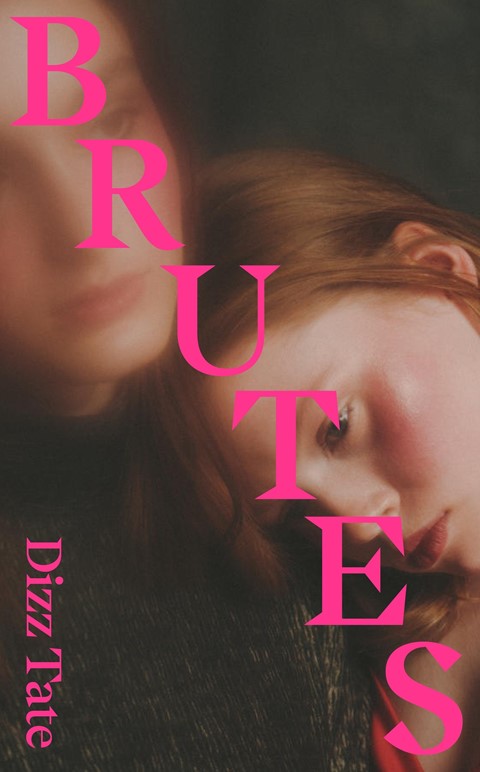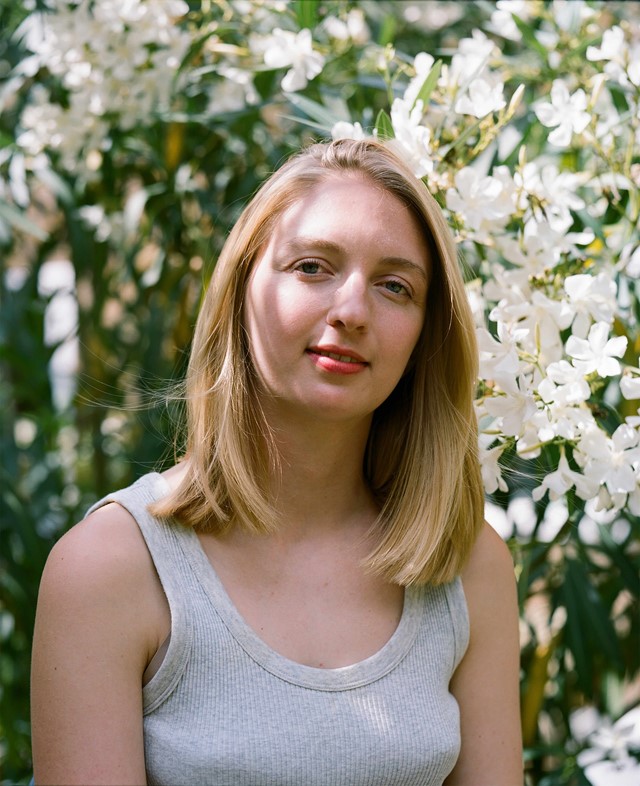The Florida-raised writer discusses her debut book Brutes – a compelling coming-of-age story that throws an original light on female adolescence
Dizz Tate’s accent flicks between British and American, a result of her transatlantic upbringing. Born in London but raised in Orlando, Florida, Tate spent most of her teen years in the States, attending a high school that lay in the shadow of roller coasters and round-ups. As a blow-in, she approached her new surroundings with the observant eye of an outsider, sizing up the fairground town like a topographer. “I was watching it as if it was a movie,” Tate tells me in the Faber offices in Bloomsbury. “I just completely fell in love with it.”
Tate’s Floridian roots came in handy when deciding a location for her debut novel, Brutes. The book, a story of a strange group of girls who act as a single entity, recalls Jeffrey Eugenides’s 1993 debut novel The Virgin Suicides. The novel is not told by a single narrator but by a chorus who moves and thinks as one. They lurk through the story as we are told a local girl has gone missing. However, the girls, the brutes, perhaps know more about it than they are letting on.

Barry Pierce: So, what led you to writing a novel in this pretty unique way?
Dizz Tate: Um, I think I’d rewritten it in every other way. [Laughs.]. I wrote a really long draft that was over 100,000 words in [the] first person but it didn’t really reflect how I felt when I was my narrator’s age. I liked her but she was just all insecure, 13 years old, fearful, nervous. And then I read this Mariana Enríquez story in The New Yorker, Our Lady of the Quarry, and that story is in this choral voice of 13-year-old girls and they’re obsessed with this older guy and they’re quite … scary? So then I started rewriting in the chorus voice.
BP: It’s such a great way to write a novel but it really hasn’t been used that much.
DT: I guess The Virgin Suicides is the biggie.
BP: Yeah, how do you feel about the comparisons between Brutes and The Virgin Suicides?
DT: I’ve read The Virgin Suicides a lot. It’s one of my yearly rereads, I think. I just love what [Eugenides] does and I wanted to basically write the reverse version of that book. I was like, ‘OK, these girls are really idealised – what happens when they’re the ones watching?’ The girls in The Virgin Suicides are quite dirty; it has that tacky, sticky atmosphere; it’s a bit of hair on your lip-gloss; it’s all a bit gross. And that felt true to me.
BP: Was the book always going to be set in Florida?
DT: Yes. I was always really obsessed with how Florida is like the suburbs – all the apartment complexes, and everything’s very new – but then there’s the swamp and the alligators and there’s always that threat. And Orlando is meant to be this beautiful city that’s made for tourists with its perfectly painted white pavements and stuff, but then it just never really quite worked. All the bugs are, like, poisonous and there are the alligators and everything smells kind of bad because it’s so hot. [Laughs.].
BP: Yeah, Orlando is somewhere you only hear mentioned because that’s where Disneyland is. The idea of people actually living there is so weird, it’s like saying you live in Legoland.
DT: In my high school, you could look out the window and see this Duelling Dragons rollercoaster and we would hear them screaming every ten seconds while you’re doing your algebra.
BP: What I think you capture really well in the book is just how weird it is being 13 years old; how you live in this weird liminal space between childhood and adulthood, just hanging with your friends and making up a secret language. And the girls in the book are absolute weirdos, in the way that most 13-year-olds are.
DT: Yeah the girls are kind of mysterious in their workings and their behaviour, but to them that makes complete sense. I think there is a sense of menace but their lives are quite unstable. I also think, when you’re 13, you’re scared. I feel as a child you still believe the stories your parents tell you and the world they build around you, but when you turn 13 you’re able to pick up and understand so much more about the architecture and what it means. I think you see when your parents start to lie and cover things up.
BP: Yeah and in the book you switch between tenses to display that in-betweenness of being 13. I feel a lot of the book is about being in that weird in-between place, like how Orlando is a real place but it’s also a fantasy land.
DT: Yeah, and also [it] will be underwater in 50 years so there’s a desperation to building these crazy theme parks.
BP: Are you working on another novel?
DT: Yeah, it’s another story about a young person but it’s an 18-year-old narrator because, again, I think it’s that really interesting point in life, like being 13, where you go from being 17 and feeling very in control and very cool and then suddenly you’re pushed into the world. But yes, it’s about a girl, who is waitressing, and it’s about falling in love for the first time but in … the pub.
Brutes by Dizz Tate is published by Faber and is out now.
